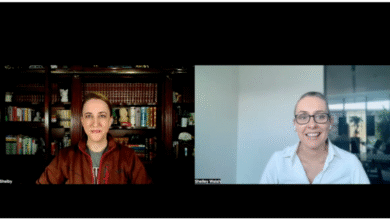SEO in 2026: Where Discipline Meets Results

▼ Summary
– Short-term SEO wins like adding structured data or FAQ sections prove immediate progress and build trust while requiring minimal dependencies.
– Long-term SEO bets such as building brand authority on platforms like Reddit or YouTube require cross-team coordination and deliver results over months or quarters.
– Business-as-usual tasks including link audits and on-page checks maintain site health and prevent foundational issues despite being less glamorous.
– An effective SEO strategy balances short-term wins (60-70%), BAU maintenance (20%), long-term bets (10%), and experiments/learning (10%) with flexibility for business cycles.
– SEO success in 2026 depends on disciplined project classification based on dependencies, time to impact, and business alignment rather than chasing every new trend.
With the arrival of 2026, the world of search engine optimization is more crowded and complex than ever. The challenge for marketers is not just keeping up with trends, but building a resilient strategy that delivers tangible results. Success hinges on a disciplined approach that carefully balances immediate gains, forward-looking investments, and the fundamental maintenance that keeps everything running smoothly. This equilibrium is what separates effective, long-lasting SEO programs from those that fizzle out.
Short-term wins are essential for demonstrating value and securing ongoing support. These quick-impact activities prove progress, build trust with stakeholders, and generate the momentum needed to fund larger initiatives. A good rule of thumb is that a short-term project is something you can execute independently, without relying on other departments. For instance, adding structured data markup to key pages is a classic short-term win if your content management system allows direct code implementation. While the effect of structured data on emerging AI tools remains uncertain, its importance for Google, which processes an enormous volume of searches, is undeniable. In practice, optimizing markup can lead to almost immediate improvements in search rankings.
Another powerful short-term tactic is the query fan-out method. If you have a page focused on a specific topic, you can expand its relevance by identifying related questions users are asking. Tools like AnswerThePublic, AlsoAsked, and Semrush, or even your own Google Search Console data filtered with a simple regex pattern, can uncover these queries. Selecting the most relevant questions and turning them into an FAQ section is a straightforward way to quickly boost a page’s topical authority. This aligns with the observed user behavior of seeking quick facts, making your content more likely to be featured by both traditional search and AI summaries. However, while these short-term efforts are vital for establishing credibility, they rarely build a lasting competitive edge.
For sustainable growth, you must also commit to long-term strategic bets. These are projects that require significant time, cross-team collaboration, or budget allocation. A common mistake is judging a project’s timeline by its complexity rather than its dependencies. Something like fixing JavaScript rendering issues might seem technically simple, but if it requires a development team to prioritize it, the project immediately shifts from short-term to long-term. Your priorities will not always align with those of other departments, so any initiative dependent on another team should be classified as a long-term endeavor.
Long-term plays also include building a presence on platforms like Reddit, YouTube, and major review sites, which are increasingly critical for visibility in AI-driven search environments. Establishing authority on these platforms isn’t instant; it demands months of consistent effort. On Reddit, you need to build karma and community trust. On YouTube, you need a sustainable process for creating high-quality video. Simply having access to AI tools doesn’t guarantee success; these tools are only effective when wielded by experienced professionals. These long-term investments position your brand where users go to validate information and make purchasing decisions, moving beyond simple query-based search.
Timing is another crucial factor for long-term projects. They must align with your company’s annual budgeting and hiring cycles. Requesting a new role or an expensive software license outside of the planning window can lead to months of delay. Furthermore, an excessive focus on future-looking projects can cause you to neglect the foundational elements of your website. A single broken link or an unoptimized title tag on a critical page can quietly erode weeks of hard-won progress.
This is why you cannot afford to ignore the business-as-usual (BAU) tasks. While monitoring for broken links, adding alt text to new images, and auditing on-page elements won’t make headlines, they are the bedrock of a healthy website. The positive aspect of BAU work is that much of it can be automated. Using tools to generate weekly reports on new and modified pages, or to flag unexpected changes to title tags, helps you maintain control and avoid surprises. The main challenge with BAU is motivation; it’s not glamorous work. For managers, it’s about keeping the team engaged. For individuals, it requires personal discipline. Neglecting these fundamentals is like skipping routine maintenance, the negative effects compound over time.
A practical framework for balancing these three areas is to allocate your focus strategically. Dedicate roughly 60-70% of your efforts to proven short-term tasks that deliver immediate results. Assign about 20% of your time to scaling and BAU activities, ensuring your site’s foundation remains solid. Reserve another 10% for long-term bets that require planning and coordination. Finally, carve out 10% for learning and a separate 10% for experiments, testing new ideas that could evolve into your next major initiative. These percentages are a guide, not a rigid formula. Your focus will naturally shift during different business cycles, such as after a website migration or during a quiet period.
To effectively manage this balance, strong project management is non-negotiable. Setting SMART goals ensures your projects are focused and measurable. Using techniques like the 5 Whys method helps you identify the root cause of a problem before starting work. Prioritization frameworks like RICE or ICE scoring can help you objectively rank competing initiatives. Consistent communication and clear scopes of work are just as important as the execution itself.
Ultimately, crafting a successful SEO strategy for 2026 is a test of discipline. It demands the consistency to deliver short-term wins, the patience to stay committed to long-term investments, and the diligence to maintain the boring but critical BAU work. The ability to continuously learn, experiment wisely, and adapt your focus without losing sight of the bigger picture is what will separate the truly effective SEO professionals from the rest.
(Source: Search Engine Land)





